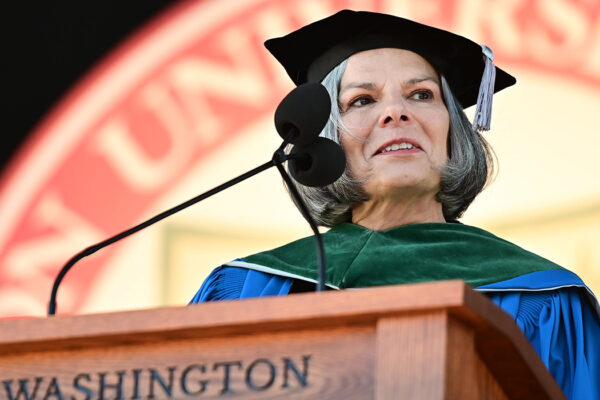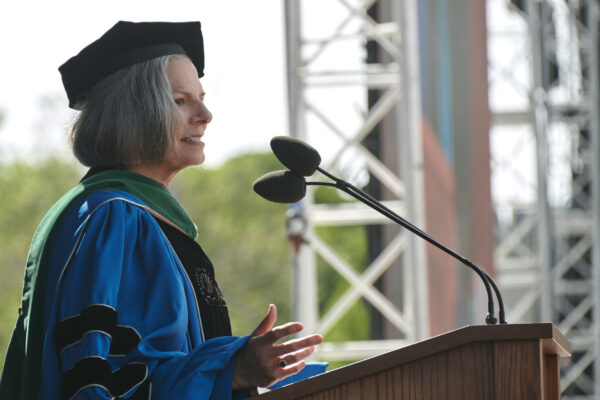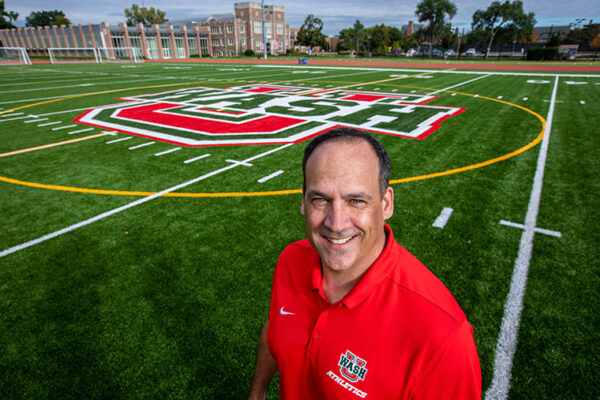Meeting the complexities of the times, together
Washington University wants to not only be “in St. Louis,” but “for St. Louis.” With that call to action, the university is taking its commitment to be a good partner in the region to another level.
‘Stride boldly through the portal of the pandemic’
Julie L. Gerberding implores the pandemic Class of 2020 to apply the unique lessons it learned these past 15 months.
Julie L. Gerberding’s address to the Class of 2020
Julie L. Gerberding, MD, the first woman to serve as director of the Centers for Disease Control and Prevention, delivered the Commencement address to returning 2020 graduates at each of three ceremonies.
Thriving in ‘unpredictable challenges’
At the 160th Commencement, one like no other in university history, NBA great and social justice advocate Kareem Abdul-Jabbar told the Class of 2021 to write their own story — but to make sure it went beyond themselves.
The endless possibilities of poetry
With a storied literary past, Washington University continues to provide time, place and space to stretch as a poet.
Life in the time of COVID
In 2020, so much about what we know to be normal came to a grinding halt for the WashU community. One week in March, we’re looking ahead to spring break, and then suddenly it’s an unending hiatus. Yet the work of the university, and its families, goes on.
Stepping up, leaning in
Andrew Whitaker, a two-sport athlete and a senior biomedical engineering major at the McKelvey School of Engineering, has spent his undergraduate career giving back.
Embracing resiliency: Meet new football coach Aaron Keen
No one could have foreseen a fall without football when Aaron Keen was named head coach last January. But the 1994 WashU graduate is tackling the challenge of his first season head on, with resiliency and a positive mental attitude learned under his friend and mentor, Larry Kindbom.
Campus Space in a COVID world
It looks the same, yet the 169-acre campus feels a bit different this fall. As students return, a by-the-numbers look at what has been done to make the campus as safe as possible for returning students, faculty and staff.
Take me back to the ballgame — and other sports venues
A new tool using math has been designed to help sports franchises keep the fan experience at stadiums and arenas the safest it can be in this era of COVID-19. The formula was developed in part by John E. McCarthy, the Spencer T. Olin Professor of Mathematics in Arts & Sciences and chair of the Department of Mathematics and Statistics at Washington University in St. Louis.
View More Stories









